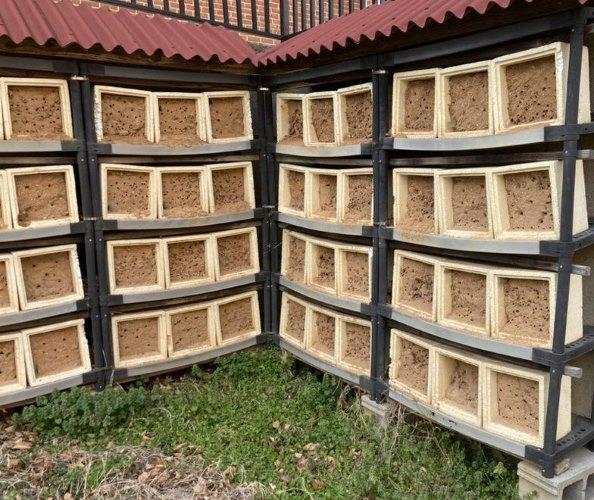
Facilities Management is happy to share that UMD has become an affiliate of the Bee Campus USA program designed to marshal the strengths of educational campuses for the benefit of pollinators. UMD joins many other cities and campuses across the country united in improving their landscapes for pollinators.
This achievement is largely due to the work of PollinaTerps a collaborative group of University of Maryland students, staff, faculty, local scientists, and community members working to build a bee and pollinator-friendly community.
The Bee Campus initiative aims to add more flowers and pollinator gardens to campus, reduce the use of insecticides, and increase the protection of wildflower populations. These changes will create a more sustainable and biodiverse ecosystem on campus, which is important for the health and well-being of our campus community and the local environment. Sustainability initiatives like these are helping to re-imagine our outdoor educational spaces while helping to address grand challenges we face in our world. In addition, the initiative will provide educational opportunities for students, faculty, and staff on the importance of pollinators, and their needs, such as access to native plants and sustainable land management practices.
Bee City USA and Bee Campus USA are initiatives of the Xerces Society for Invertebrate Conservation, a nonprofit organization based in Portland, Oregon, with offices across the country. Bee City USA’s mission is to galvanize communities and campuses to sustain pollinators by providing them with healthy habitats, rich in a variety of native plants, and free of pesticides. Pollinators like bumble bees, sweat bees, mason bees, honey bees, butterflies, moths, beetles, flies, hummingbirds, and many others are responsible for the reproduction of almost ninety percent of the world's flowering plant species and one in every three bites of food we consume.
For more information, visit the PollinaTerps bee campus website.
